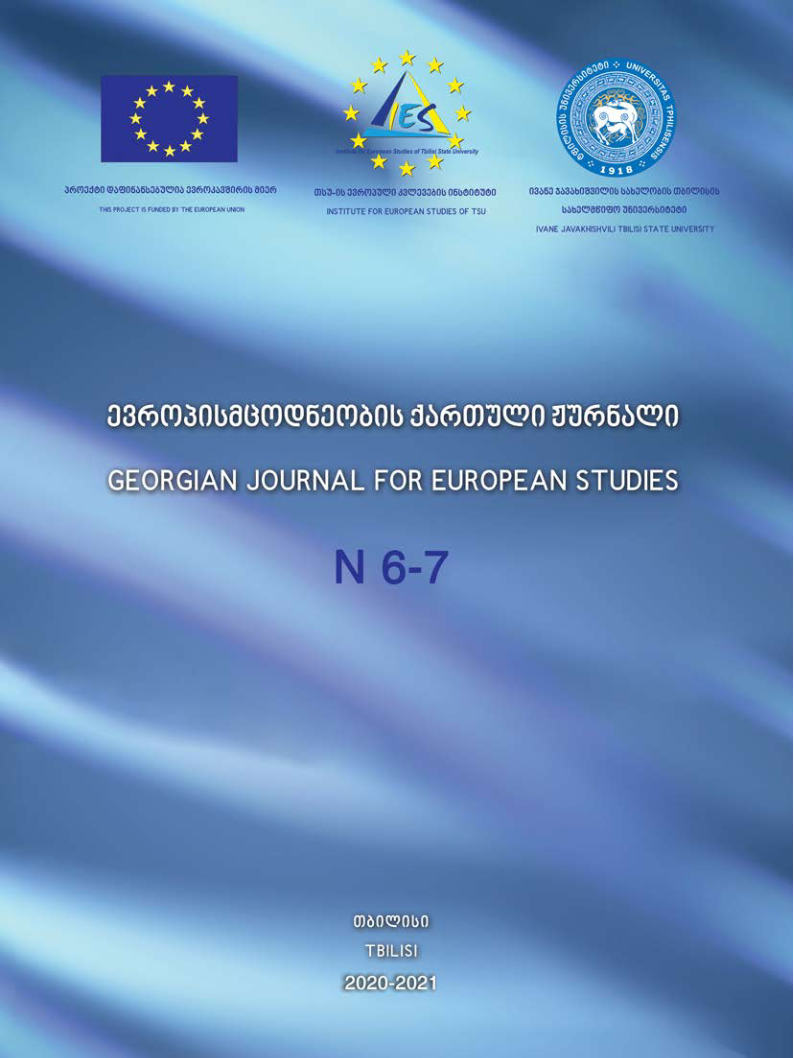The Policy of the European Union towards the states of Eastern Partnership Initiative
Keywords:
European Union, EU-Russia Relations, Frozen Conflicts, Constructivism, Constructive EngagementAbstract
As a global actor in a contemporary international system, EU is interested in conflict resolution and de- mocracy promotion in the neighbouring regions. In order to provide insight on what are the reasons be- hind EU’s approach and external policies towards eastern neighbourhood one might argue that, European Union involvement in the Post-soviet state is closely connected to the relations with Russia. Looking at the cases of frozen conflicts in Georgia, Armenia-Azerbaijan, Moldova and Ukraine, it is apparent, that EU would rather use constructive engagement as a tool for partnership, rather than comprehensive sanc- tions. Most importantly, the EU does not have holistic approach when it comes to eastern partnership countries and its involvement is influenced by three main factors: EU-Russia Relations, EU’s interests in the particular state and EU internal tensions. Furthermore, complicated nature of the EU-Russia relations, which then translates itself into EU’s involvement in the frozen conflicts, can be explained in light of con- structivist theory.
Looking at the previous studies, this research aims to contribute to the academic literature in three ways. First, in contrast to the majority of the studies, it shifts the focus from the effectiveness of policies towards the nature of the EU itself. Secondly, it takes a dual approach towards reasoning behind the EU’s effective- ness, and measures both, internal and external tensions, and correlation of the two. And lastly, it draws conclusions on the EU’s role by comparing cases with different degrees of involvement and severity, rather than similarities.


